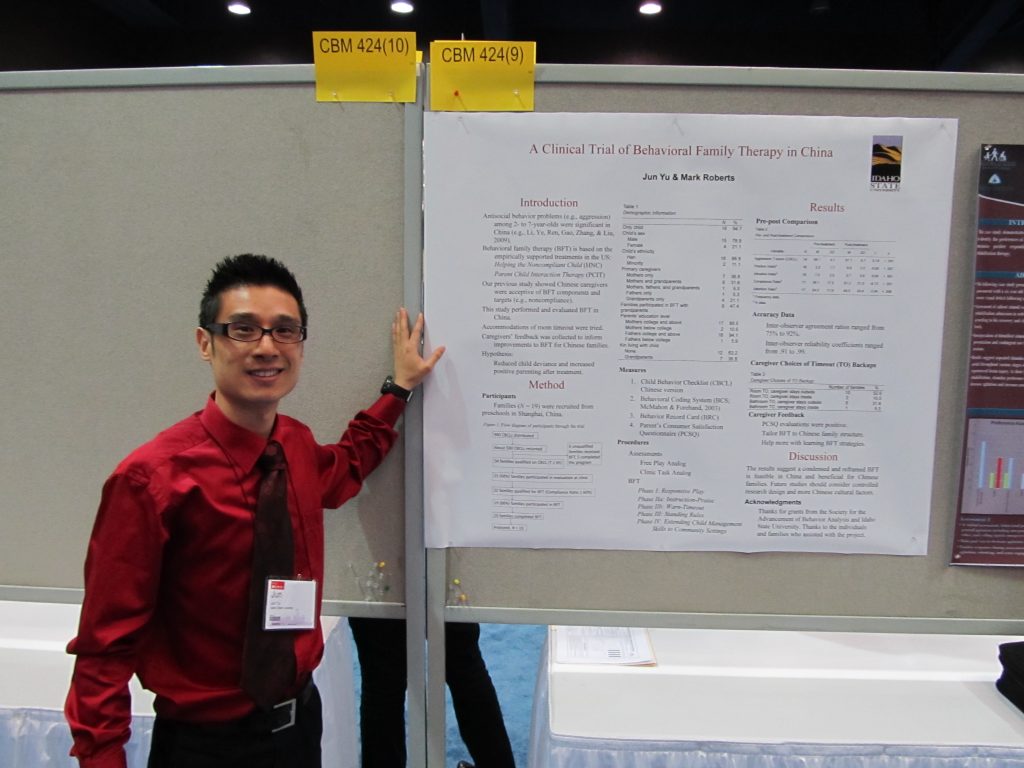 Good news to share! We’ve just learned of two significant victories in my husband Jun Yu’s discrimination case against Idaho State University.
Good news to share! We’ve just learned of two significant victories in my husband Jun Yu’s discrimination case against Idaho State University.
#1: The Court granted Jun Yu’s motion to amend his present complaint; the newly amended complaint now has 18 counts against ISU
Last year, after doing research and reading the expert reports, our lawyers determined Jun’s case was much stronger than the initial complaint (and its 3 counts) reflected. However, since the Court’s set deadline for amending complaints had passed, in April 2016 we filed a motion to amend the complaint (meaning, we were asking the Court’s permission to amend), which ISU opposed.
This Court decision, allowing us to amend the complaint, strengthens Jun’s case. The newly amended complaint now has 18 counts of wrongdoing against the university — six times what we initially had — and truly reflects the egregious harm ISU inflicted upon Jun.
It also means we’ve just added some very significant counts to the case.
One of the most important counts is number four, the denial of substantive due process rights. This count was supported by the reports from Jun’s leading experts in ethics, cultural competence, and aversive racism, who have all concluded that ISU’s actions towards him were “a substantial departure from accepted academic norms.” Why does this matter? Because the Supreme Court ruled (See Regents of University of Michigan v. Ewing) that universities cannot substantially depart from accepted academic norms in their judgments regarding students.
The opinions of Jun’s experts are significant. It is the rare case where a plaintiff presented expert witnesses who belong to faculties to conclude that an academic institution behaved in an arbitrary and capricious manner that was a substantial departure from accepted academic norms.
Besides the denial of substantive due process, we’ve also added in a number of breach of contract counts. A notable one is count number seven, Failure to Adhere to the Code of Ethics of the American Psychological Association (APA) (as per Idaho licensing law). This count comes from the conclusions of our leading experts in psychology, including one of the most renowned authorities on ethics in psychology, who determined ISU violated a number of APA Ethical standards in their treatment towards Jun Yu. (You can read the full reports detailing APA Ethics violations here and here). That’s how serious this is; leaders in the psychology field are standing up to condemn the behavior of ISU.
If you’re a legal geek or just curious, you’re welcome to read the Court’s full decision and the amended complaint. I also encourage anyone who wants to understand the strength of Jun’s case to read the full expert reports on the record: ethics, cultural competence, and aversive racism
#2: The Court granted Jun Yu’s request to obtain the records of all students who were pursuing doctorate degrees in Clinical Psychology between 2008 and 2015 at Idaho State University.
ISU was trying to withhold valuable information from us — information that could potentially reveal discriminatory treatment.
Initially, our lawyer had requested these student records to prove discrimination occurred. Because ISU denied the request, in March 2016 our lawyer filed a motion to compel the university to produce the student records, which ISU also opposed.
Finally, the Court says ISU must hand over the records:
The Court finds the records requested by Plaintiff are relevant to his claim of discrimination based on national origin and his allegations at this stage in the proceedings are sufficient to warrant production of these materials. Plaintiff’s need for these records sufficiently outweigh the students’ privacy interest…
This is great news. Again, for the legal geeks out there, you can read the full Court decision here. You can also browse all the public documents in Jun Yu versus Idaho State University.
So, what’s next in the case?
There’s still another pending motion before the Court, a motion for summary judgment that was filed by ISU back in September 2016. Before the case even gets assigned a trial date, we need to overcome summary judgment. It’s one of the most critical hurdles for a civil suit.
We already believed we could overcome summary judgment last year. We feel more confident after these decisions from the Court — particularly the Court’s decision granting us the leave to file an amended complaint, adding many critical counts to the lawsuit.
There’s still much to do before a trial would happen, including sorting through seven years worth of student records from ISU (which could end up costing a lot of time and money). That’s why your support, in whatever form you can provide, is so important.
Here’s how you can help:
- Your donations can help fund the legal costs associated with the lawsuit. Every donation counts and no amount is too small. You can donate through Generosity, as well as Paypal ([email protected]) and WeChat (diziguijiaoyu).
- Share our story with people you know and ask for their support.
- Write about what happened to Jun Yu. (You can find all the public documents in the case right here.)
Thank you so much for your continued support and interest in the case! We will keep you posted!



 People have been asking, where is the discrimination in Jun Yu’s case? The answer is, modern discrimination and racism usually lurk behind more obvious wrongdoing.
People have been asking, where is the discrimination in Jun Yu’s case? The answer is, modern discrimination and racism usually lurk behind more obvious wrongdoing.